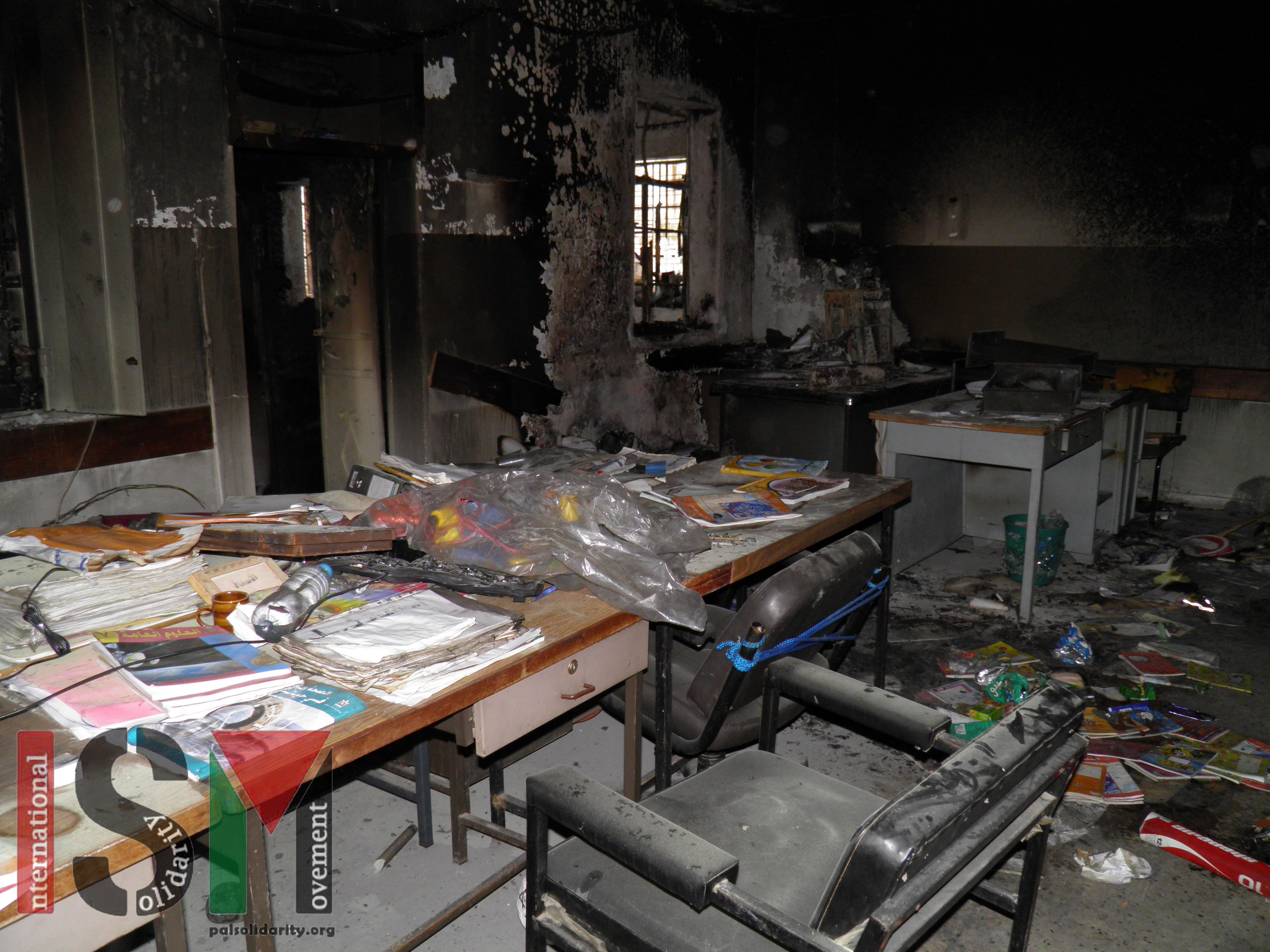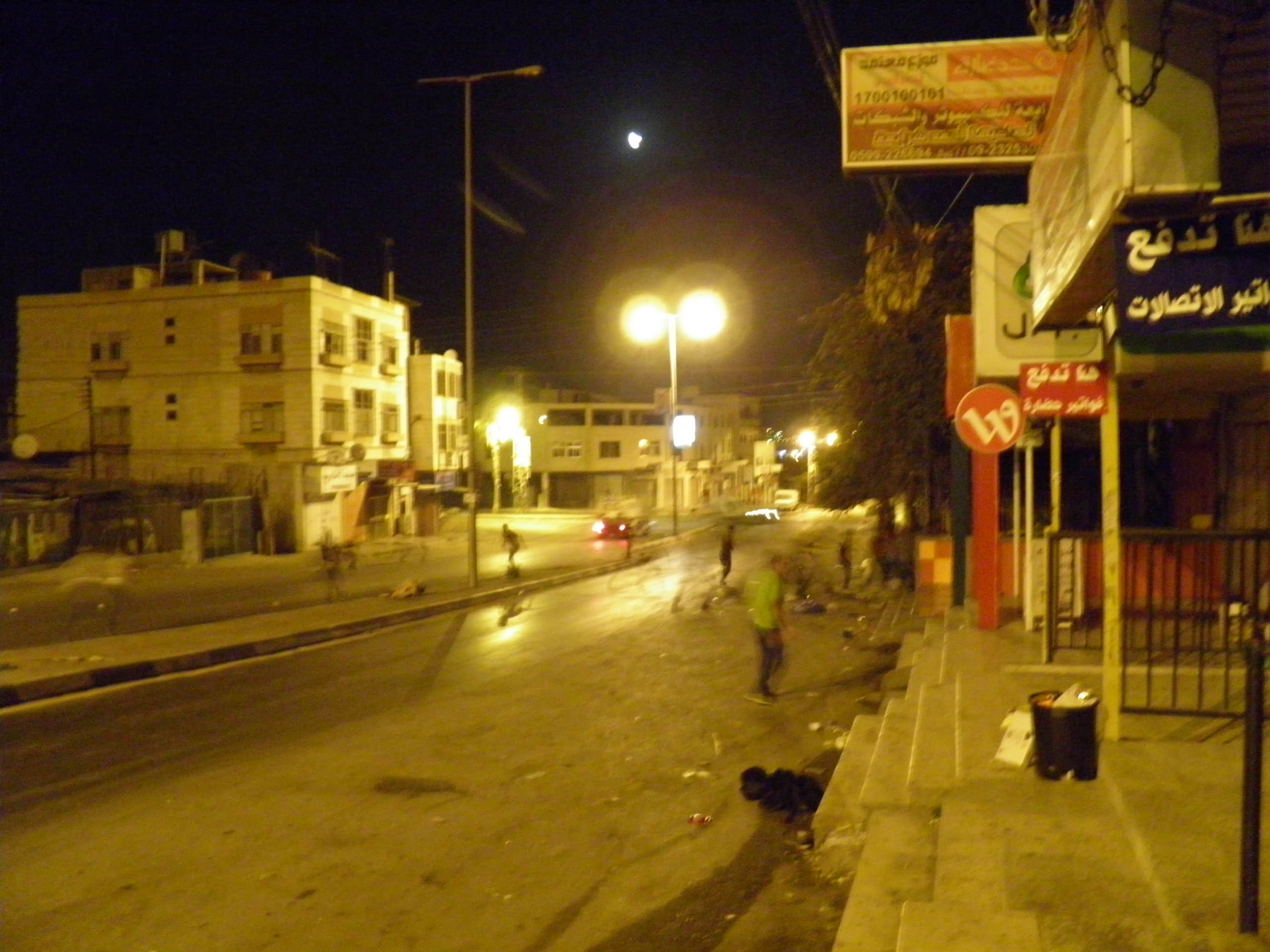-
The Israeli offensive on Gaza caused full or partial damages to 75 kindergartens and day-care centers
21st September 2013 | Democracy and Workers’ Rights Center in Palestine | Gaza, Occupied Palestine The Democracy and Workers’ Rights Center field teams have documented full or partial damages to 75 kindergartens and day-care centers caused during the 51 day Israeli offensive against the Gaza Strip this summer. DWRC’s field workers conducted field visits to all the […]
-
Palestinian school set on fire
21st September 2013 | International Solidarity Movement, Nablus team |As-Sawia, Occupied Palestine On the evening of the 10th September, unknown assailants broke into the As-Sawia Secondary School, forced open the door and set the school on fire. Bedouins living close to the school saw the fire and alerted the fire brigade. By the time it was put […]
-
Israeli settlers and soldiers invade Balata refugee camp
20th September 2013 | International Solidarity Movement, Nablus team | Occupied Palestine On the 17th of September, under heavy Israeli army protection, Israeli settlers from nearby illegal settlements entered Nablus with the aim of praying at Joseph’s tomb in Balata refugee camp. Just after midnight, the Israeli army closed the district that surrounds the monument, blocking all the […]
Action Alert An Nabi Saleh Apartheid Wall Arrests BDS Bethlehem Bil'in Cast Lead Demonstration Denial of Entry Ethnic Cleansing Farmers Gaza Global Actions Hebron House Demolition International law Israeli Army Jerusalem Live Ammunition Nablus Ni'lin Prisoner Ramallah Rubber-coated steel bullets Settlement Settlers Settler violence Tear-Gas Canister Video



